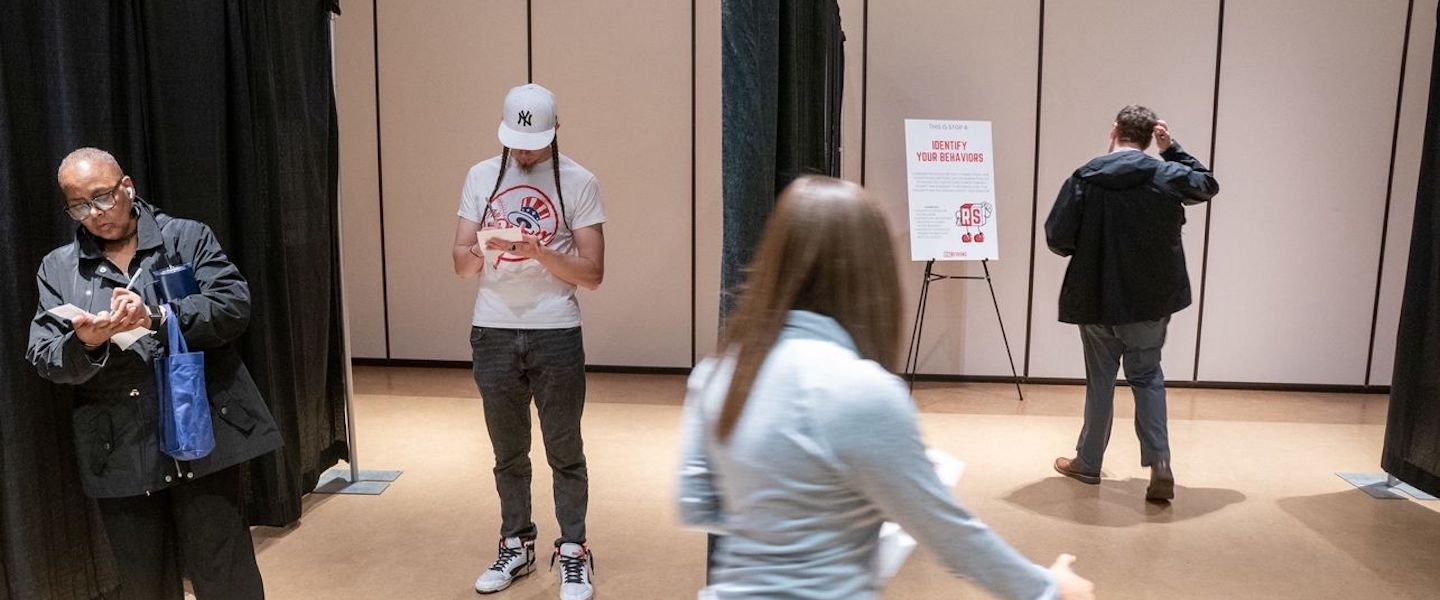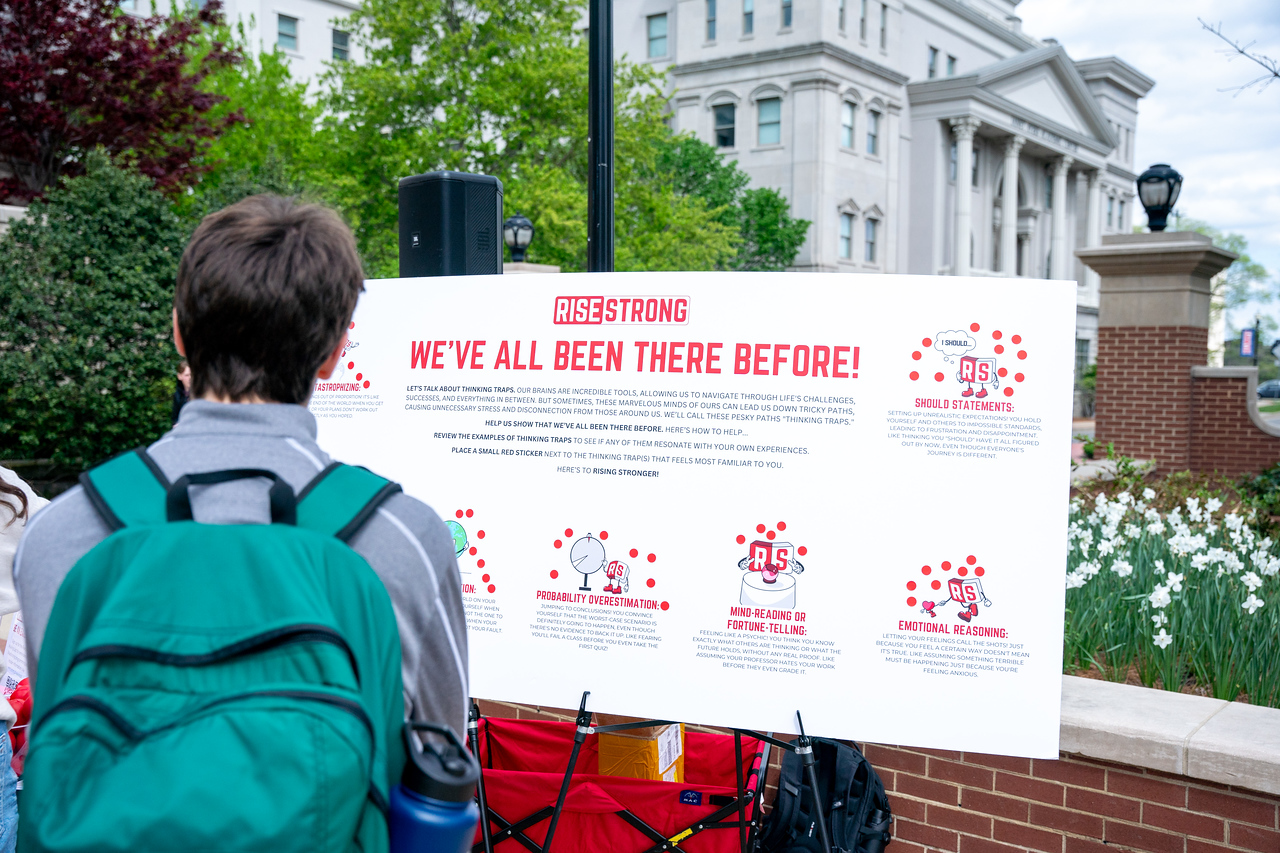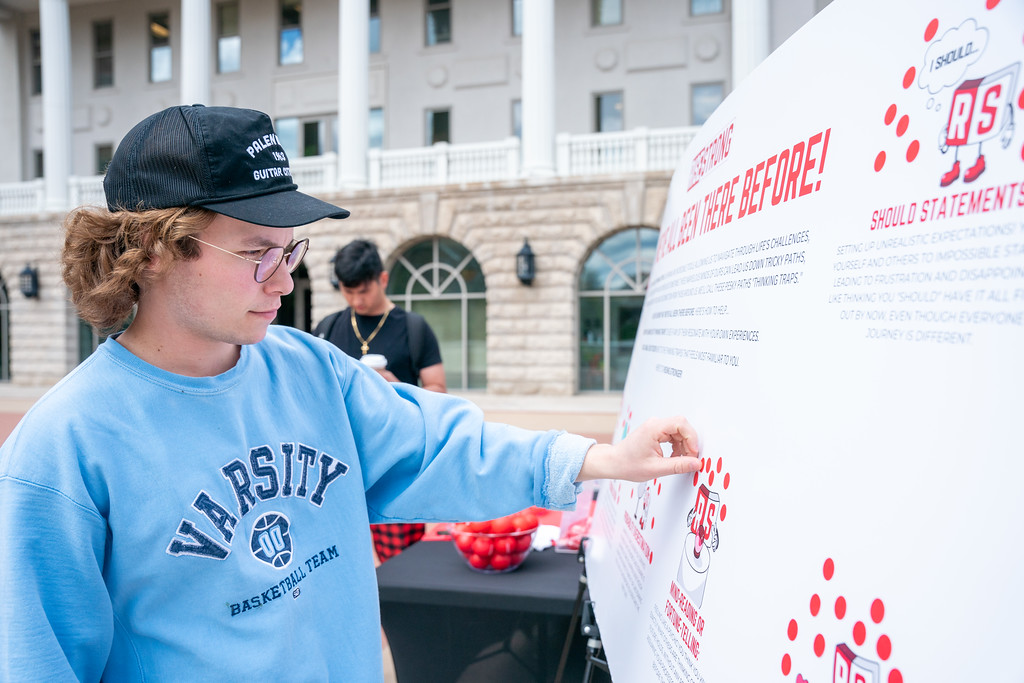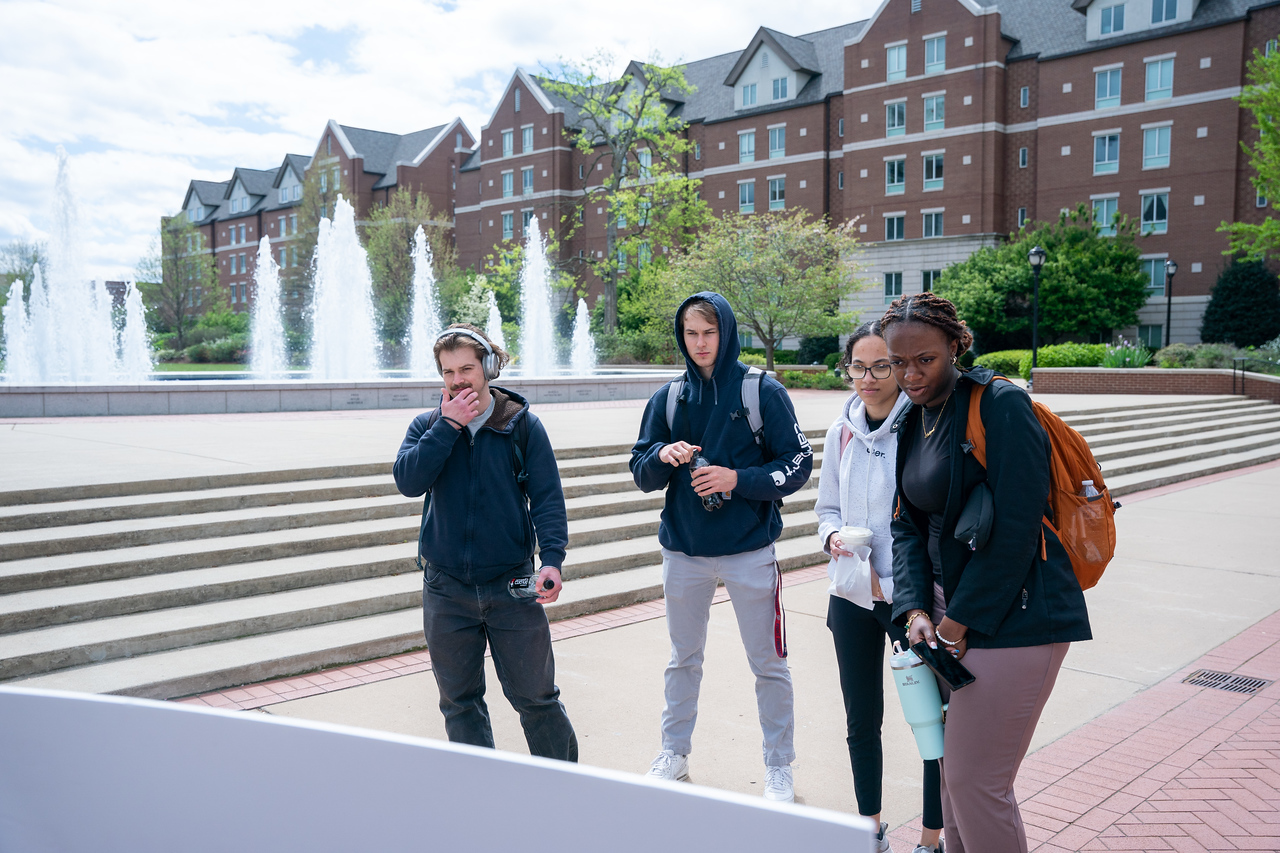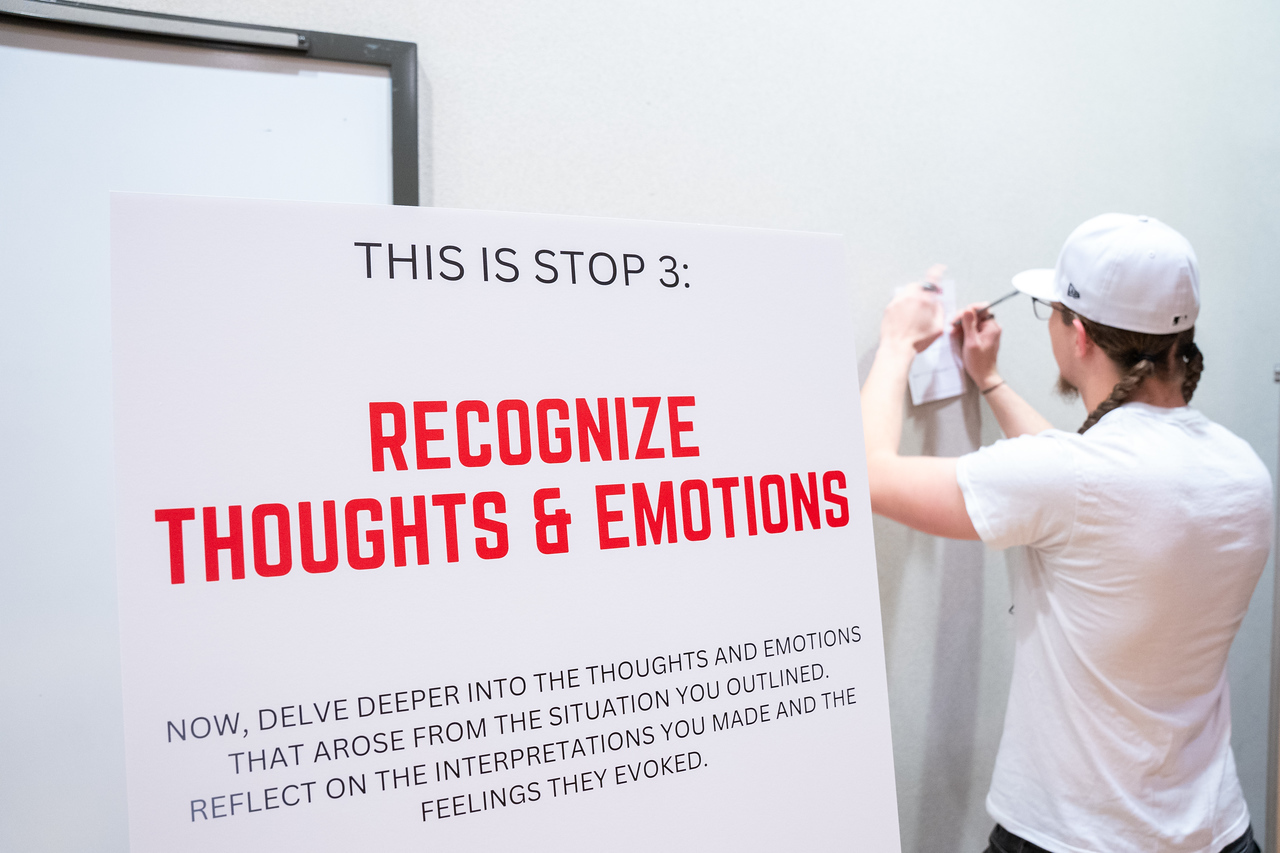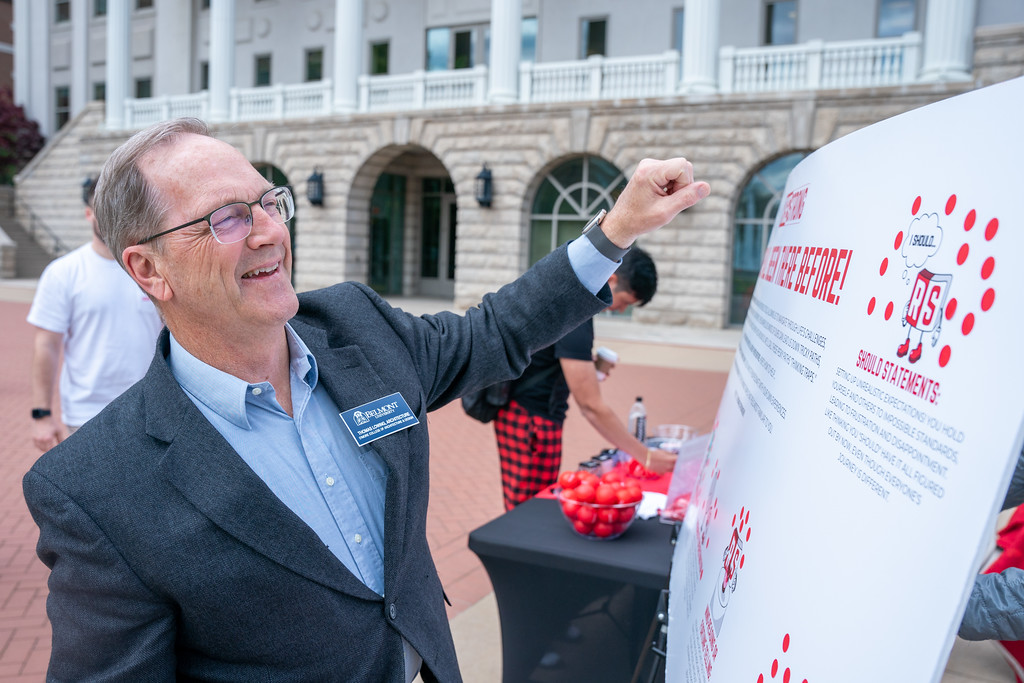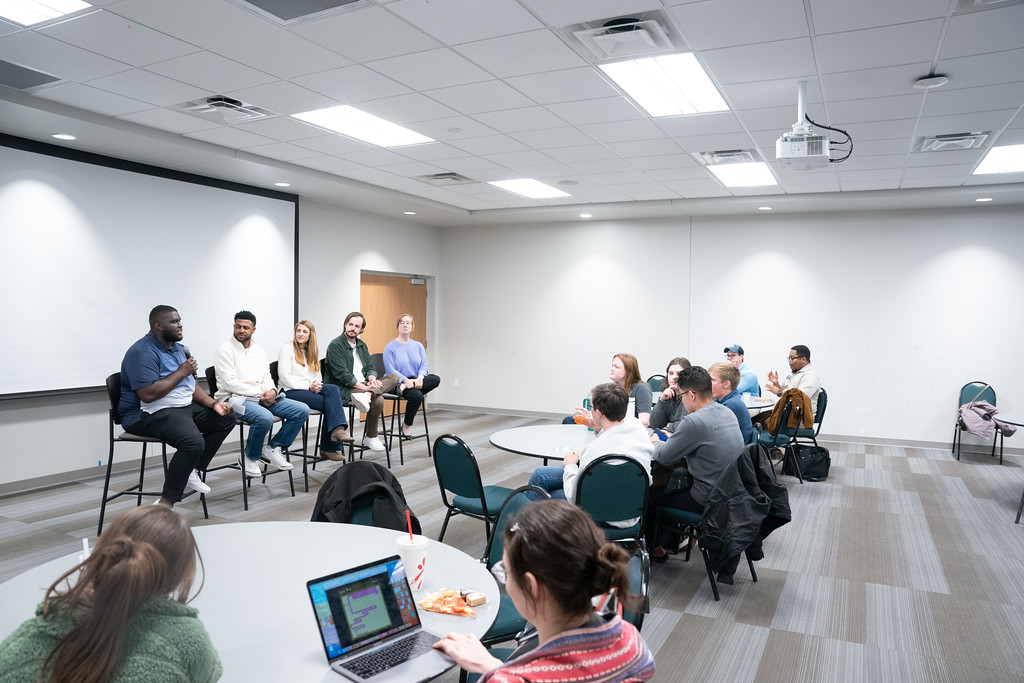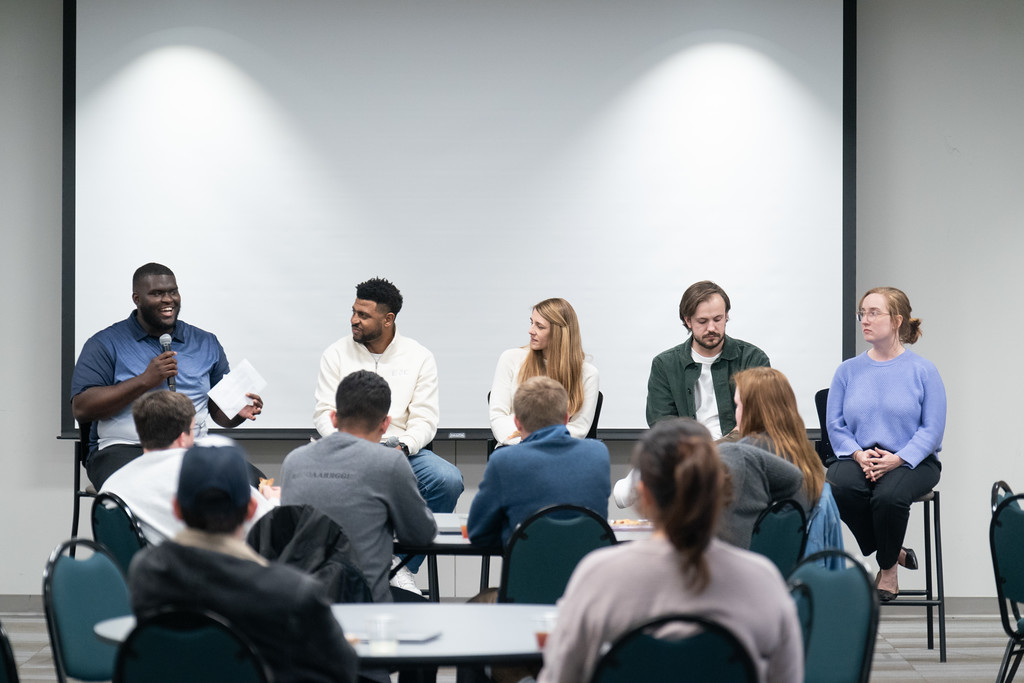In the face of an increasingly complex and challenging world, Belmont is intentionally equipping its campus community with the tools to build resilience and a growth mindset. Last week, the University hosted a series of events under the banner of "RiseStrong" - a multi-faceted initiative aimed at fostering emotional intelligence, vulnerability and the ability to bounce back from adversity.
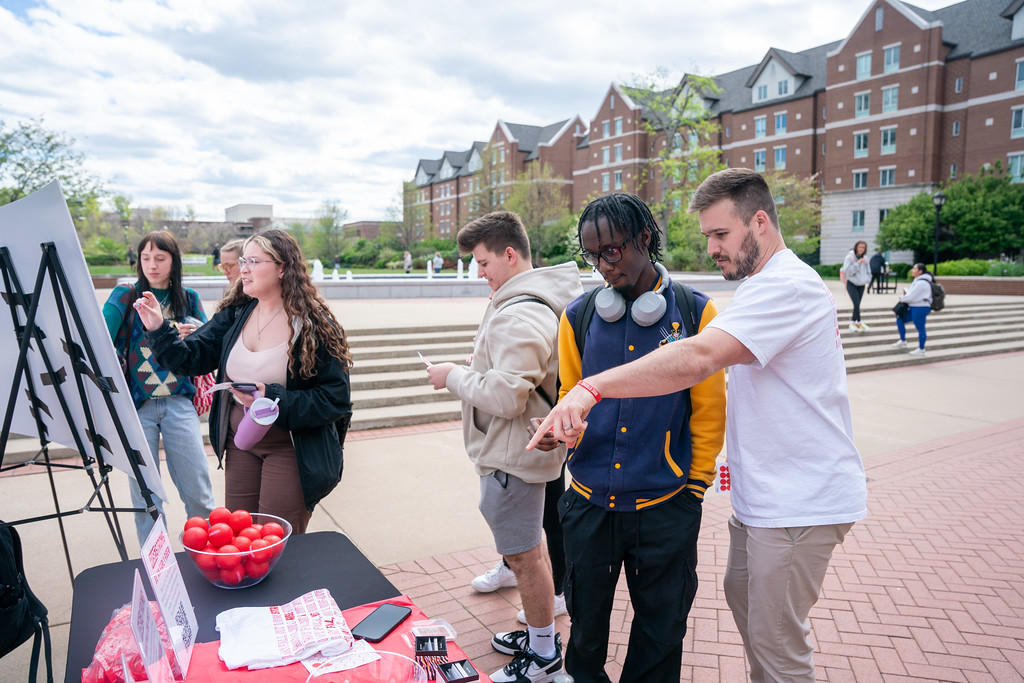 "Unfortunately, the world is not getting any less adverse," explained Joe Mankowski, transformational project strategist, who planned and executed the event series. "We're facing all kinds of stressors - known and unknown. As we approach this concept of forming ‘whole people,’ and holistically forming people, we have to build the capacity to withstand these pressures."
"Unfortunately, the world is not getting any less adverse," explained Joe Mankowski, transformational project strategist, who planned and executed the event series. "We're facing all kinds of stressors - known and unknown. As we approach this concept of forming ‘whole people,’ and holistically forming people, we have to build the capacity to withstand these pressures."
The "RiseStrong" series grew out of the University's previous "Fail Fest" event, which sought to break down the stigma around failure. "This is just the next step in that evolution of saying, ‘let's also think about the rising on the backend,’" added Mankowski. "Yes, we want to be vulnerable. We want to talk about obstacles we face, but we also want to share stories and strategies for how we do ‘rise stronger’ in the face of those things."
The week featured a variety of events tailored to different segments of the Belmont community, from student-focused "pop-up" sessions to dedicated programming for students, faculty and staff. The anchor was a powerful keynote address by former Major League Baseball player and two-time World Series Champion Ben Zobrist during chapel, Friday, April 5.
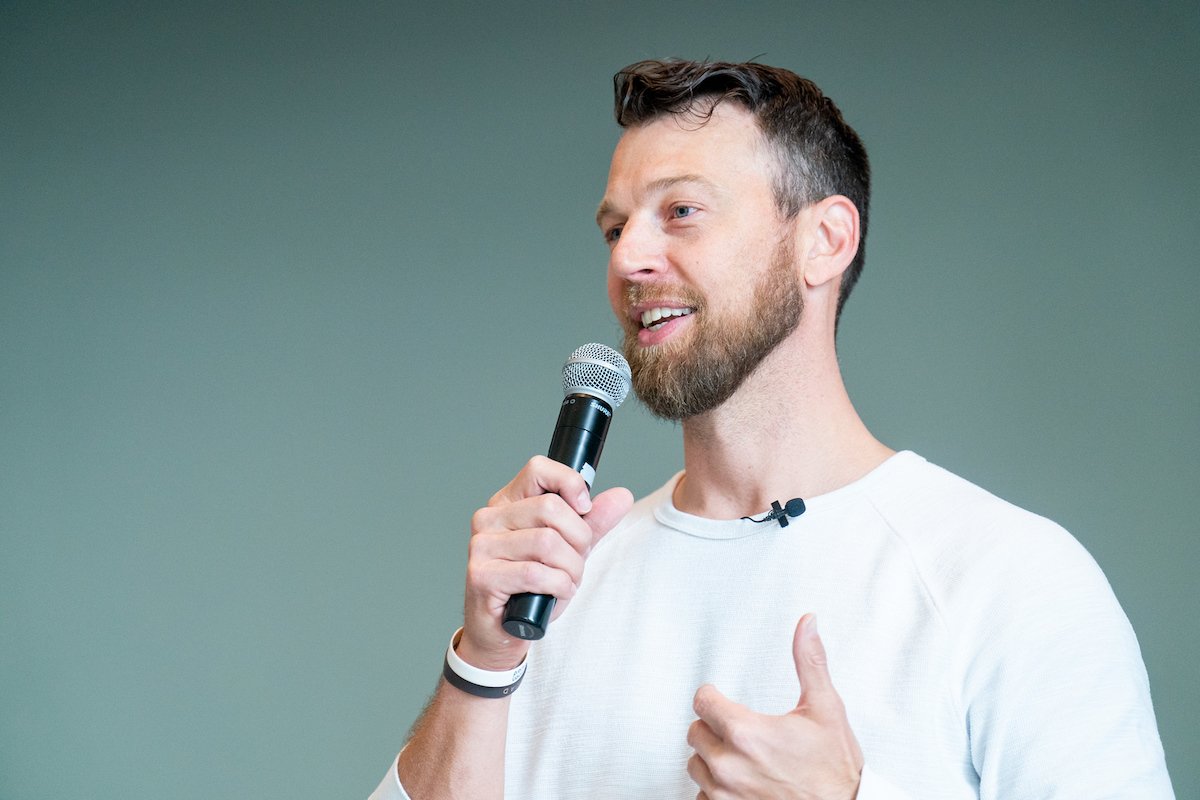 Zobrist, who has been open about his own journey with mental health challenges, vulnerably shared about the highs and lows of his baseball career and the importance of finding one's true identity in Christ beyond any single role or accomplishment. He mentioned a particularly low season when he heard God remind him that he is enough. He is enough for God to love him and send his son to die for him, apart from any of his accomplishments or challenges.
Zobrist, who has been open about his own journey with mental health challenges, vulnerably shared about the highs and lows of his baseball career and the importance of finding one's true identity in Christ beyond any single role or accomplishment. He mentioned a particularly low season when he heard God remind him that he is enough. He is enough for God to love him and send his son to die for him, apart from any of his accomplishments or challenges.
"That’s why he sent Jesus: not because you’re perfect, not because you can pick yourself up by your bootstraps, not because you’re strong enough. He’s strong enough in you,” Zobrist encouraged. “When you feel known by God, and you know that you're valuable, deep inside, it doesn't matter. You guys are going to rise strong. God has a way of making beauty out of whatever the situation is."
In addition to the chapel keynote, the "RiseStrong" series also included:
RiseStrong Student Events:
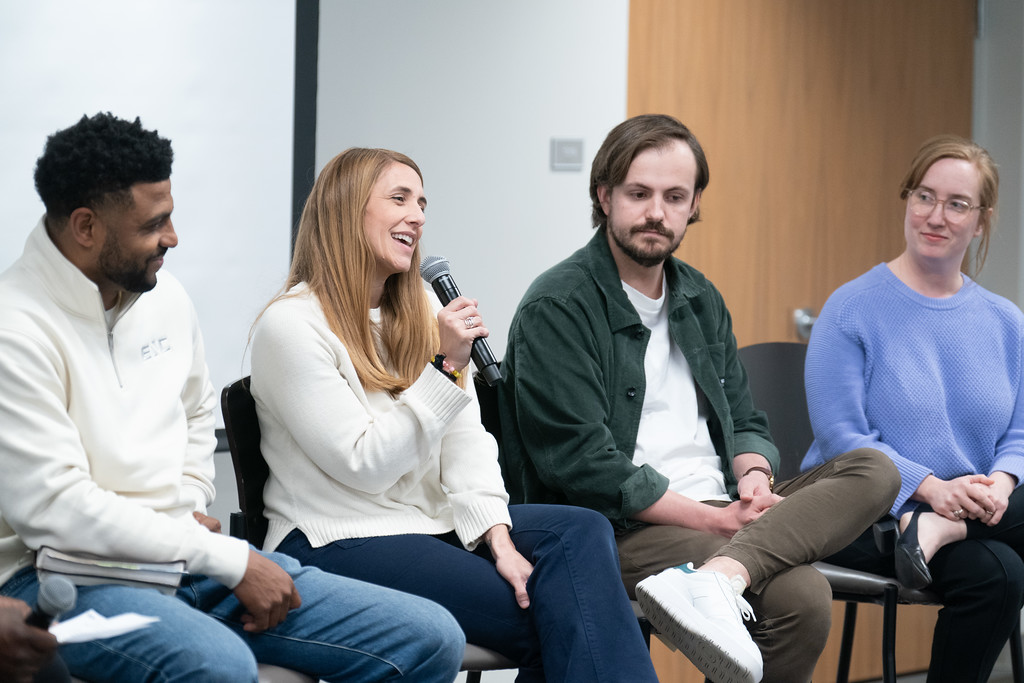 Throughout the week, the University hosted a series of informal "pop-up" events for students across campus, creating space for reflection of personal stories around resilience, growth and overcoming adversity.
Throughout the week, the University hosted a series of informal "pop-up" events for students across campus, creating space for reflection of personal stories around resilience, growth and overcoming adversity.
“A Walk Down Reframe Lane” encouraged practice with reframing troubling experiences with productive thoughts and behaviors. “Steps Toward a Growth Mindset” helped participants discover the components of a growth mindset and identify steps toward building resilience. “We’ve All Been There Before” explored common “thinking traps” to gain insights into distorted thought patterns and their impact of perception.
On Thursday, April 4, the “Pastors, Pizza and Perseverance” panel allowed several Nashville pastors to share their stories of perseverance across their spiritual and professional stories in an event held exclusively for students.
Resilience Redefined: Faculty Luncheon
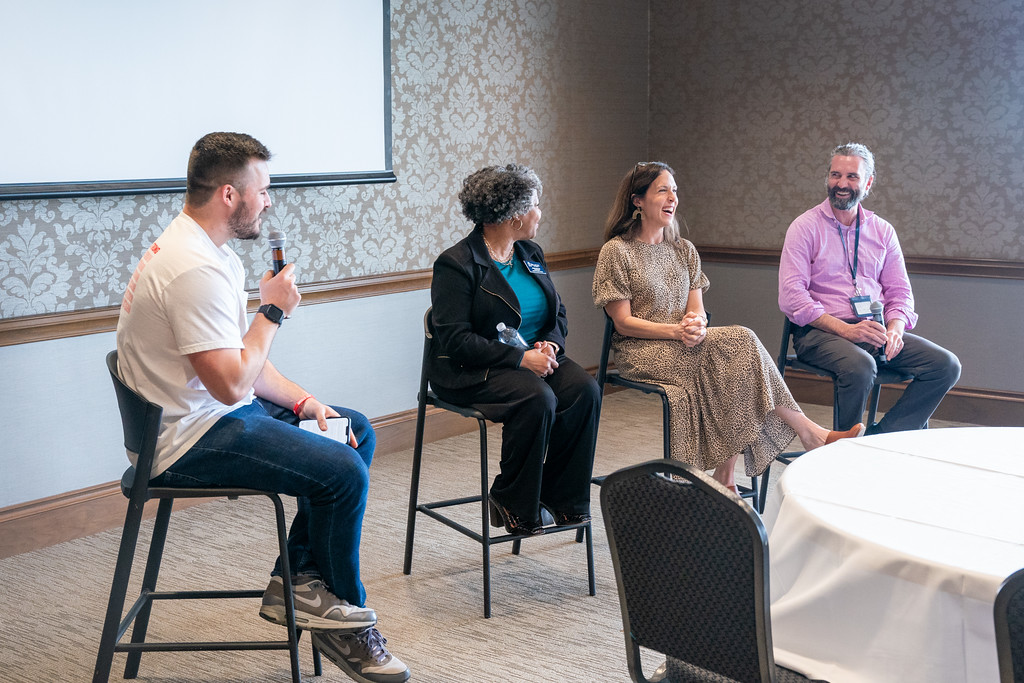 Faculty members gathered for a moderated discussion about grittiness, how to build it in themselves and promote it in students. The panel included Dr. Elizabeth Morse, associate professor in the College of Nursing; Dr. Angie Bryant, associate dean, student well-being and Dr. Andrew Michel, associate professor of psychiatry.
Faculty members gathered for a moderated discussion about grittiness, how to build it in themselves and promote it in students. The panel included Dr. Elizabeth Morse, associate professor in the College of Nursing; Dr. Angie Bryant, associate dean, student well-being and Dr. Andrew Michel, associate professor of psychiatry.
Morse said students have a lot of variability in the skills they bring to college, so the role of faculty and staff is to help them manage the diverse types of issues they may be facing for the first time in their adult lives.
“I sit with them and encourage them not to get in the habit of looking for excuses, but rather, orient them to their agency and their power and get them in the habit of thinking that way,” she said. “A lot of times they need the space to find their own courage. It’s meeting them in their shame when they are experiencing a failure and saying, ‘I get it. This is hard. Now, what are we going to do next?’”
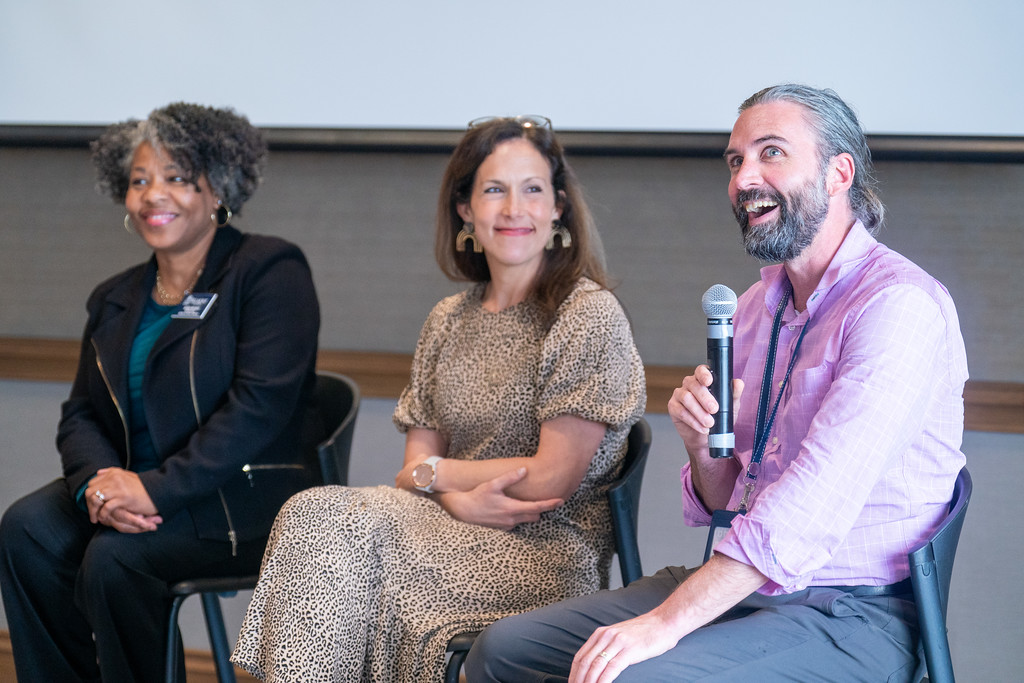 Bryant talked about how spending time sitting with herself and practicing self-awareness of her true feelings has helped her develop grit over the years and prepared her for her role shepherding students at Belmont.
Bryant talked about how spending time sitting with herself and practicing self-awareness of her true feelings has helped her develop grit over the years and prepared her for her role shepherding students at Belmont.
“One of the ways we can help students develop grit is simply to maintain the standard,” she explained. “I can be in a challenging situation and be very compassionate and kind but still be firm about the standard. It’s helping them discover their courage, their importance, while I maintain the expectation of how we will be in our community. I say, ‘I’m here and I will walk with you because I know you can do this.’ This is who Belmont is. Students have come to us so they can be made better, so they can be transformed in these moments and discover they are so much stronger than they ever knew.”
View photos from the luncheon.
Staff Storytelling Event:
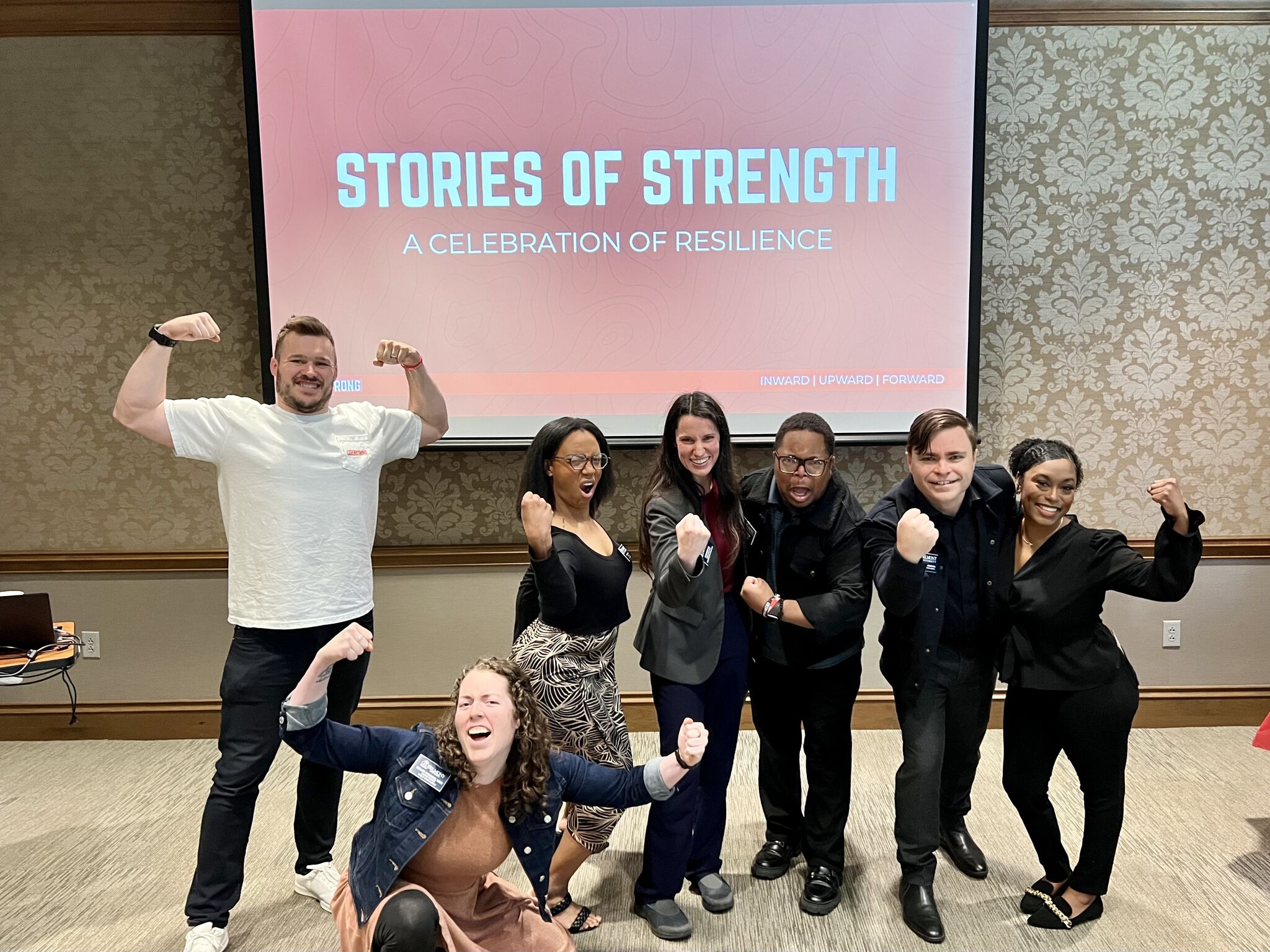 Belmont's staff also had the opportunity to share their unique stories of strength and resilience. In an intimate setting, several employees opened up about the challenges they have faced - from difficult medical diagnosis to life-altering decisions or events - and the growth that emerged from those difficult seasons.
Belmont's staff also had the opportunity to share their unique stories of strength and resilience. In an intimate setting, several employees opened up about the challenges they have faced - from difficult medical diagnosis to life-altering decisions or events - and the growth that emerged from those difficult seasons.
Speakers were Presidential Fellow Marcus Knight, Assistant Director of Service-Learning Keller Hawkins, Project Thrive Program Manager Nick Baird-Chrisohon, Grants Coordinator Alyssa Dituro, Student Support Specialist TyNia Albea and Institutional Research Analyst Katherine Hill.
After recounting a particularly hard season as a student during COVID who felt paralyzed and overwhelmed with all that was on his plate, Knight concluded, “If you want to solve all the world's problems, start with one. If you want to change the lives of a community, start with one person. If you want to try and get your metaphorical pile of clothes off of the floor, start with one shirt, one sock, one shoe at a time."
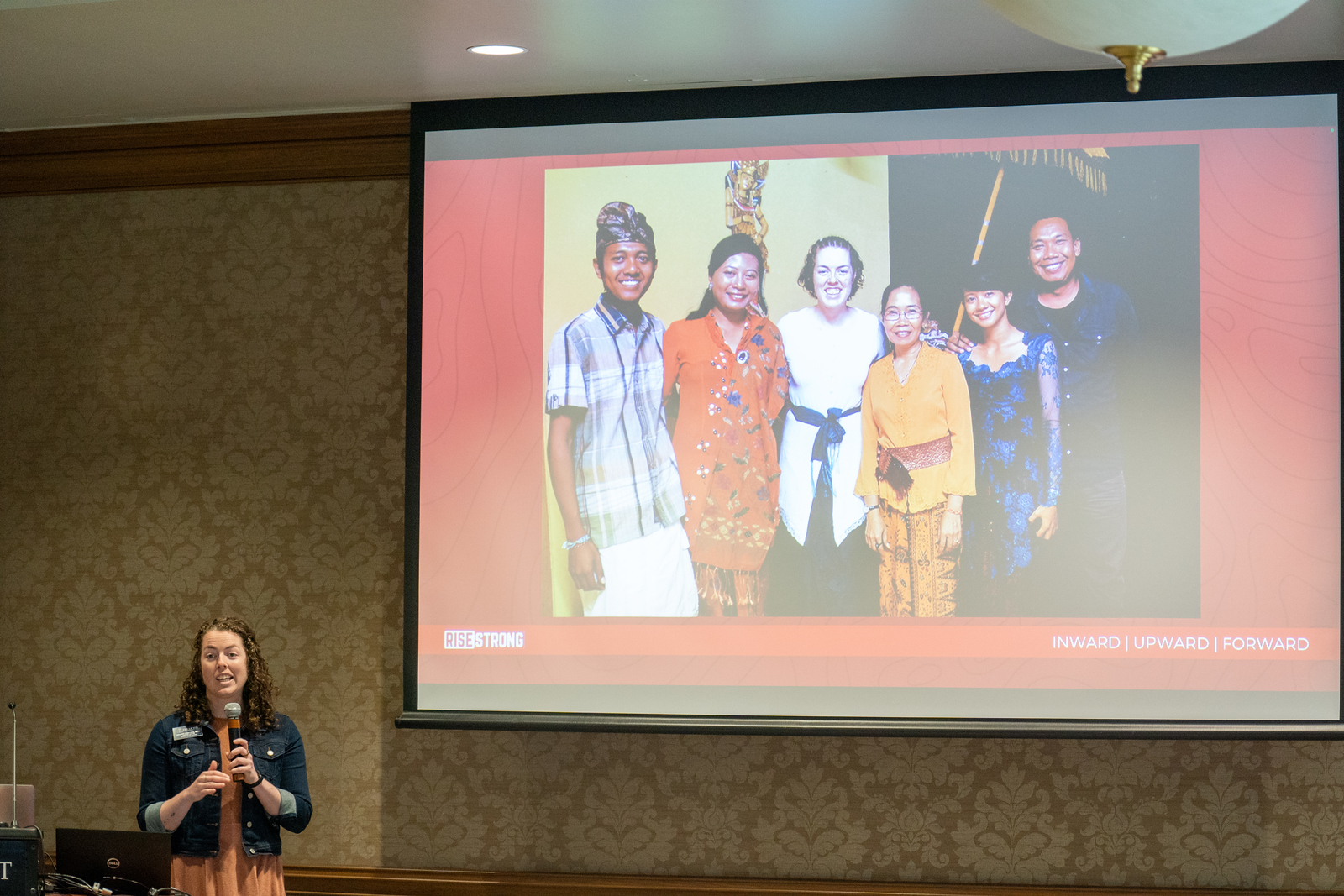 Hawkins told her story of being diagnosed with multiple sclerosis and how this news pushed her to lean on her swim team at the time for support, comfort and stability. She talked about how her life has changed with new medical routines, though 11 years after her diagnosis, she is symptom free. She finished with something she wrote for her 10-year milestone.
Hawkins told her story of being diagnosed with multiple sclerosis and how this news pushed her to lean on her swim team at the time for support, comfort and stability. She talked about how her life has changed with new medical routines, though 11 years after her diagnosis, she is symptom free. She finished with something she wrote for her 10-year milestone.
“Who knows what will come but today I celebrate. I will walk until I cannot walk. I will walk for those who cannot walk. I will honor my body in all its beautiful complexity. And when the days come when my body fails me, I will continue to honor it. For it has brought me thus far. And it is home.”
View photos from the event.
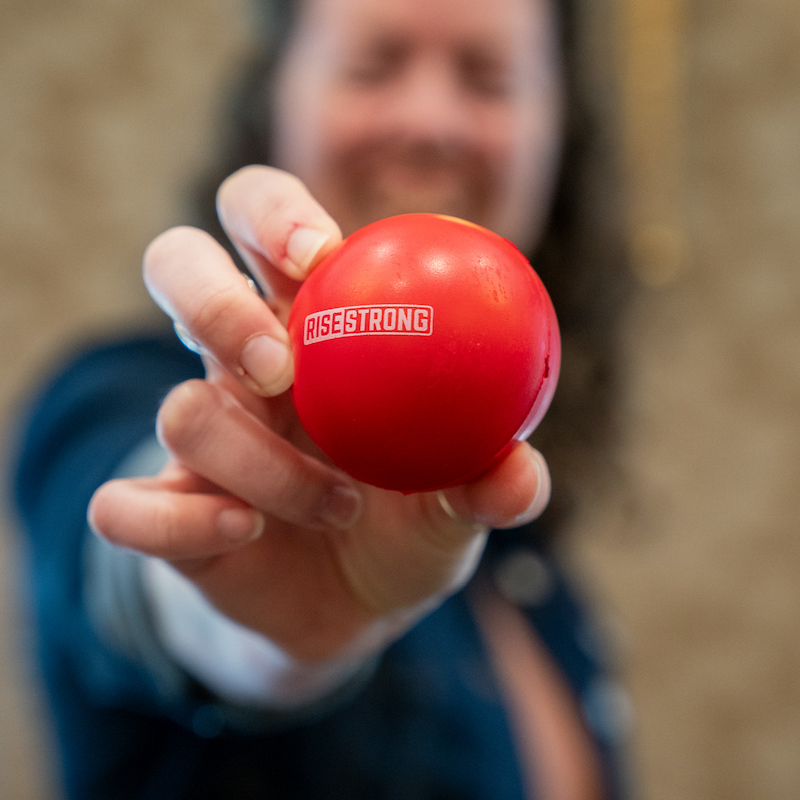 By creating spaces for reflection, vulnerability and the exchange of resilience-building strategies, the "RiseStrong" series sought to empower the entire Belmont community to face life's storms with courage, wisdom and an unwavering sense of self-worth.
By creating spaces for reflection, vulnerability and the exchange of resilience-building strategies, the "RiseStrong" series sought to empower the entire Belmont community to face life's storms with courage, wisdom and an unwavering sense of self-worth.
"RiseStrong is aligned with who we are as a University and our mission," said Mankowski. "If we are going to be focused on being the leading Christ-centered institution, known for radically championing flourishing for all, we have to be able to rise out of adversity in order to flourish and achieve our full potential."
As Albea eloquently put it in her story of strength, "I want to help students in a way that my support specialist helped me when I needed it most. I want to be able to understand that students have personal experiences that trip them up sometimes, and I want them to be resilient in the ways that I finally got the hang of with a lot of support. This is the goal: to maintain that resilience, keep supporting students, keep impacting people and keep just being okay.”

